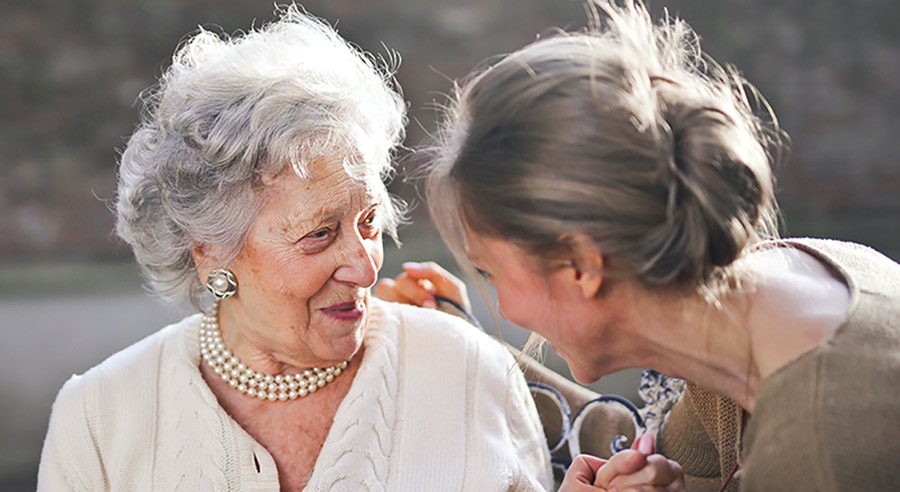The Role of Home Care Providers in Australia in Supporting NDIS Plan Managers and Caregivers
The Role of Home Care Providers in Australia in Supporting NDIS Plan Managers and Caregivers
Blog Article
How In Home Care Givers Address the One-of-a-kind Challenges and Psychological Requirements of Families Seeking Assistance for Their Relatives
At home caregivers play a critical duty in browsing the complexities dealt with by families looking for assistance for their enjoyed ones. By recognizing distinct family members characteristics and giving tailored emotional support, these experts not just address prompt care requirements however also foster an environment of trust and open communication. This technique is vital in managing the psychological strain frequently experienced by families, as it acknowledges their worries and verifies their experiences. The subtleties of this partnership extend past mere caregiving; the effects for family well-being and caregiving efficiency warrant additionally exploration.
Recognizing Family Characteristics
Understanding household characteristics is critical for providing efficient at home care, as each family members runs within a distinct set of communications and partnerships. These dynamics incorporate numerous components, including communication designs, duties, and power frameworks that affect how treatment is delivered and obtained. The caretaker must acknowledge these factors to make certain that treatment strategies align with the family's expectations and values.
Different families may exhibit distinct patterns of interaction, such as ordered frameworks or collaborative methods. In some households, a primary decision-maker might hold substantial influence, while in others, decisions may be extra democratic. Understanding these patterns assists caregivers tailor their techniques to fit the household's specific demands.
In addition, social histories play a vital duty in shaping household dynamics. Caretakers need to be culturally qualified, acknowledging and valuing varied techniques and ideas that might influence care preferences.
Eventually, a thorough understanding of household dynamics promotes boosted communication, fosters depend on, and improves the caregiver's ability to support the family members effectively. By recognizing the intricate web of duties and connections, caretakers can produce a supportive setting that promotes health for both the individual obtaining treatment and the household overall.
Giving Emotional Support
Supplying emotional assistance is a crucial element of at home care that dramatically boosts the health of both the individual receiving treatment and their family participants. In the context of caregiving, psychological support includes energetic listening, empathy, and validation of sensations. Caretakers are trained to acknowledge the emotional struggles that family members face, such as anxiousness, regret, and isolation, and to give a compassionate visibility that eases these burdens.
By cultivating open communication, caregivers produce a secure space for relative to reveal their worries and problems. This discussion not just urges psychological release however likewise enhances trust fund in between the caregiver and the household. Additionally, caregivers can supply practical techniques to assist families manage stress and promote durability.

Ultimately, the psychological support offered by in-home caretakers improves the lifestyle for both clients and their family members, advertising a much more compassionate and understanding caregiving setting. This all natural strategy makes sure that emotional needs are resolved together with physical health considerations.
Taking Care Of Daily Care Tasks
Taking care of everyday treatment tasks is a critical element of at home treatment that guarantees people receive the assistance they require to maintain their health and freedom. Caretakers play a crucial role in helping with activities of daily living (ADLs), that include bathing, dressing, brushing, and meal prep work. By taking on these obligations, caretakers aid relieve the psychological and physical burdens that families may encounter while taking care of their enjoyed ones.
In enhancement to individual treatment, caretakers are also home care providers australia tasked with medicine administration, ensuring that clients follow recommended does and timetables. This oversight is important for keeping wellness and protecting against negative effects from missed out on or inaccurate drugs. Caregivers commonly aid with flexibility, providing support for clients moving around their homes, thereby decreasing the threat of falls and enhancing overall safety.

Cultivating Open Communication
Effective administration of daily treatment tasks commonly depends upon the quality of interaction between caretakers, clients, and their families. Open up communication cultivates an atmosphere where concerns, choices, and feedback can be easily exchanged, making certain that care is customized to satisfy specific needs. Caretakers should focus on regular check-ins with both clients and their family members, assisting in conversations that resolve any concerns or modifications in care requirements.
Utilizing various communication methods-- such as in person meetings, telephone call, and written updates-- can boost understanding and give households with assurance. It's important for caretakers to proactively pay attention, demonstrating empathy and regard for the emotional landscape of the family. Urging concerns from relative can additionally help clear up care plans and strengthen the caretaker's dedication to openness.
Additionally, maintaining open lines of communication enables caregivers to identify and react quickly to any kind of shifts in a customer's health and wellness status or emotional well-being. This positive method not just enhances the caregiver-client vibrant however also encourages families to take part actively in the care procedure. Ultimately, cultivating open communication is important for enhancing the top quality of in-home care and advertising a supportive environment for all involved.
Building Trust Fund and Relationships
Trust fund is the keystone of effective in-home care, as it establishes a foundation for meaningful partnerships between caretakers, clients, basics and their families. Structure this trust fund calls for consistent, transparent interaction and a genuine commitment to the well-being of those included. Caregivers should demonstrate reliability via punctuality, adherence to care plans, and responsiveness to the needs and choices of clients.
To promote trust, caregivers should participate in energetic listening, ensuring that families really feel heard and comprehended. This entails not just addressing instant worries but also expecting future requirements, thus equipping family members and boosting their sense of control. Creating connection via shared experiences and considerate interactions can better strengthen these relationships.
Moreover, caregivers need to be trained to recognize and address the psychological complexities faced by families. By showing empathy and empathy, they can relieve unpredictabilities and fears, reinforcing count on. Normal updates and check-ins with member of the family can also improve transparency, allowing them to feel engaged and educated about their loved one's care.
Eventually, building depend on and nurturing partnerships in at home care is a joint process that considerably affects the high quality of care provided, fostering an encouraging environment that benefits everyone entailed.
Verdict
In-home caretakers play a crucial role in attending to the unique difficulties and emotional demands of families. By recognizing household dynamics, providing psychological support, and promoting open interaction, caregivers enhance the general caregiving experience. Their ability to handle daily treatment tasks while constructing trust and strong partnerships grows a helpful atmosphere for customers additional resources and their families. Inevitably, the caring engagement of caretakers significantly adds to boosted well-being and durability for those browsing the complexities of caregiving.
Recognizing household dynamics is essential for giving reliable in-home treatment, as each household operates within an one-of-a-kind set of interactions and relationships.Supplying emotional assistance is a vital component of at home care that dramatically improves the well-being of both the private getting treatment and their family participants. By taking on these responsibilities, caretakers assist alleviate the emotional and physical worries that families might face while caring for their liked ones.
Efficient monitoring of everyday care jobs typically hinges on the top quality of communication in between caregivers, clients, and their families - home care providers.Trust fund is the foundation of effective in-home treatment, as it establishes a structure for meaningful partnerships between caregivers, customers, and their households
Report this page